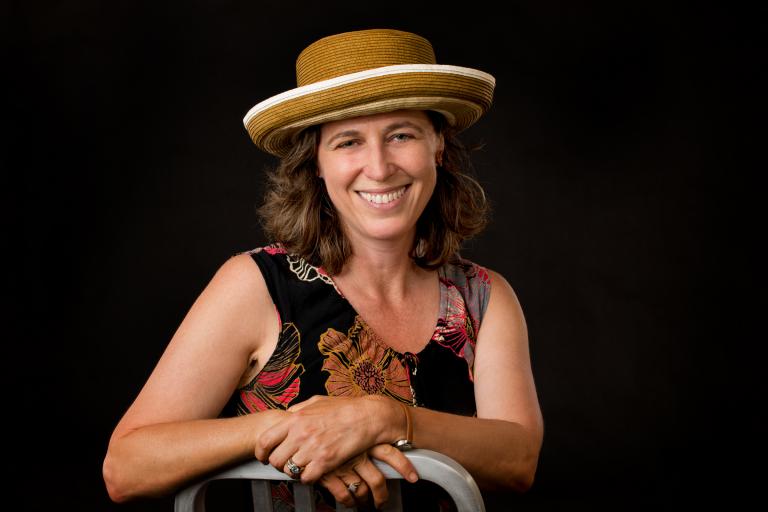
Katz receives Reynolda Fellowship from Andrew W. Mellon Foundation
calendar icon14 Oct 2019
Lincoln, Neb.—University of Nebraska–Lincoln School of Art, Art History & Design Professor of Art History Wendy Katz has joined Reynolda House Museum of American Art as the recipient of the year-long Reynolda Fellowship, funded by a grant from the Andrew W. Mellon Foundation.
Reynolda is a partner with Wake Forest University in the fellowship, which was created to advance cross-disciplinary learning across campus and in the community. Katz’s research and teaching will enrich the interpretation of historic Reynolda, including its relationship to the Reynolds family’s multi-faceted legacy, its impact on Winston-Salem, North Carolina, and its contemporary connectivity to student learning at Wake Forest.
“The Reynolda House Museum of American Art is a wonderful complement to a museum like the Sheldon,” Katz said. “The Sheldon has masterpieces of American art, with a special emphasis on early modernism—Hopper, O’Keeffe, Sloan, Henri, Stella, Duchamp, Stieglitz, and many, many more. Reynolda House, however, has particular excellence for the 19th century, with masterpieces by William Sidney Mount, Frederic Edwin Church, William Merritt Chase, Eastman Johnson, and many others. Having just finished my book on art criticism in the New York press before the Civil War (https://go.unl.edu/n5ux), it’s exciting to be surrounded by the artists who were key players in the art world politics of that time.”
Katz is on leave from her position at the University of Nebraska–Lincoln this year while at Reynolda.
“Wendy’s keen interest in the Colonial Revival period and the cultural context of the Progressive era interconnects with Katharine Reynolds’ own interest and vision,” said Allison Perkins, executive director of Reynolda House and Wake Forest University associate provost for Reynolda House and Reynolda Gardens. “Through teaching and research in the humanities, Wendy will ignite curiosity and launch explorations of our history and our collections through the lens of new scholarship.”
As the Reynolda Fellow, Katz will provide fresh insight into Reynolda’s celebrated and multi-faceted collections of American art, decorative arts and archives. Katz will also have a direct impact on students and learning in the upcoming spring semester when she co-teaches American art with David Lubin, the Charlotte C. Weber Professor of Art at Wake Forest.
“My current research is on a circle of mid-nineteenth-century artists who are actually not at Reynolda House; artists who lost the battle for fame in the press,” Katz said. “However, these artists were involved in the Colonial Revival of the 1850s, an effort to identify common origins in a nation then torn by sectional strife. Reynolda House—the house, not the art collection—was a product of a second Colonial Revival, in the early 20th century. Part of my research aims at understanding how these two moments of ‘revival’ differed, and why. I’ll be giving talks on my research in October and then at greater length in the spring. I’ve also convened a fabulous faculty study group with curators, anthropologists, American studies scholars, divinity school scholars, and historians to talk about the function of revivals in material culture (furniture, houses, etc., not just the fine arts).”
Reynolda, in Winston-Salem, North Carolina, is a rare gem among the nation’s cultural institutions and historic greenspaces. The 51-year-old museum at the center of Reynolda’s 180 acres, Reynolda House Museum of American Art, presents a renowned art collection in a historic and incomparable setting: the original 1917 interiors of the country manor of R. J. Reynolds. Spanning 250 years, the collection is an uncompromisingly selective one, a chronology of American art, with each artist represented by one work of major significance.